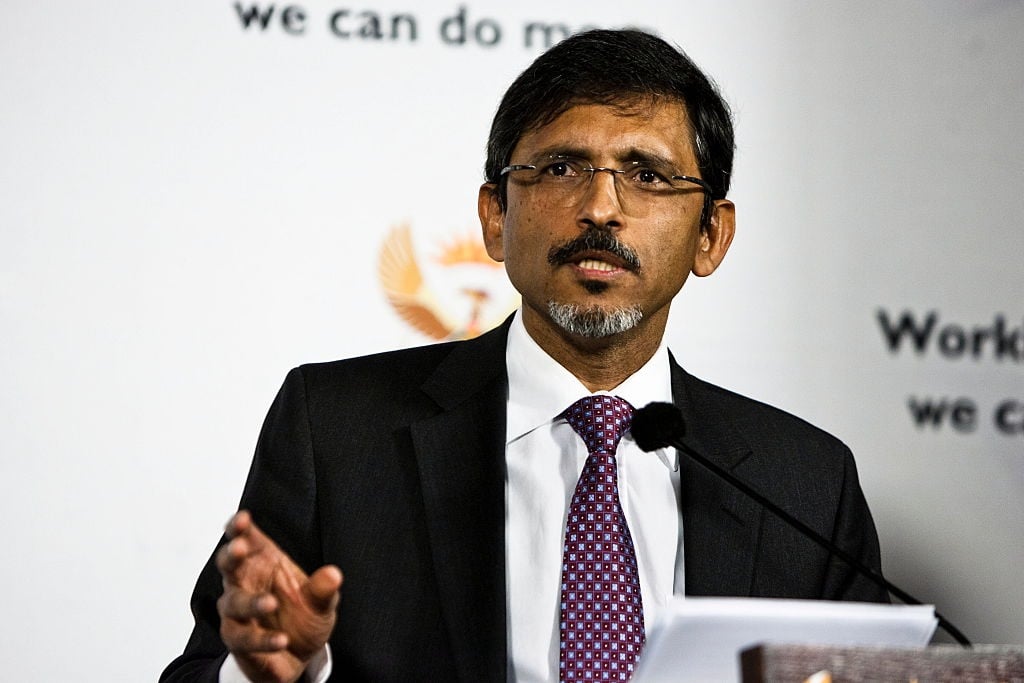
- Minister Ebrahim Patel said R1.5 billion in direct support had been approved after the July unrest.
- Industrial Development Corporation CEO Tshokolo Nchocho said R600 million of new applications had been received.
- Processes were sped up to ensure faster payouts.
Minister of Trade, Industry and Competition Ebrahim Patel said the Industrial Development Corporation, the Solidarity Fund and the National Empowerment Fund were at the heart of providing R1.5 billion in successful claims from businesses affected by July's looting.
Patel was updating the media on the Department of Trade, Industry and Competition's interventions aimed at softening the blow on businesses that had their property destroyed and operations disrupted due to the riots.
Outrage at the imprisonment of former president Jacob Zuma morphed into spates of violence in Gauteng and KwaZulu-Natal, which wrought an estimated R50 billion worth of damage to the economy.
Speaking at a virtual update event on Tuesday afternoon, Patel said the IDC and NEF had approved R1.5 billion in direct support, which could be broken down to 123 separate transactions representing 320 business sites.
"We have also worked with associations and groups. In the sugar industry, we got an application from sugar farmers whose cane was burnt, and R85 million was made available to cover 192 sugar farmers. This has been approved and will get to the final beneficiary," said Patel.
Patel said the department and its entity sharpened their interventions through surveys, financial support, supply chain linkages, coordination between firms in the provision of essential goods, union support and working with sectors in the economy on focused solutions.
"This has helped us make progress in the recovery and reconstruction of the economy. The economic recovery package announced in July was set up in August. We have had site visits and retooled the NEF to have teams across the country to encourage companies to apply for support," Patel said.
Avoiding corruption, 'double dipping'
Patel told attendants that state-owned insurer Sasria was also working closely with the department to enable information to flow both ways to speed up claims. The NEF got R150 million in support from the Solidarity Fund, he said.
"Our institutions have had to become more proactive, not just processing claims but going out to business. We have asked that IDC approval committees must meet daily. We have tried to put in measures to avoid double dipping and corruption," he said.
IDC CEO Tshokolo Nchocho said funding needed to be as concessionary as possible when dealing with post-crisis interventions, to make the support sustainable. He said R700 million of the R1.5 billion should be in grant form.
"We went to our board with an argument and submission where if where is infrastructure repairs require, there is a need for money on a concessional basis. Of the R1.5 billion from IDC, part of it was in debt form at a 5% rate and some of it was in grant form," said Nchocho.
Nchocho said speed was of the essence in ensuring that businesses got the assistance they needed.
"The assessment processes were streamlined. The decision-making dispensation was revised to ensure that we move with speed...We have set aside a dedicated team that goes in and assists with reconstruction of the processes," Nchocho said.
"Our teams went out and it was important to respond and adjust funding to the needs of the businesses as we went along."
Nchocho added that most of the approved funding had already been paid out.
"The internal synergies in the IDC ensured that teams worked in an integrated way in order to achieve the success where 70% of the funding we approved has already been disbursed. We have R600 million worth of new applications that we are processing now," said Nchocho.
NEF CEO Philisiwe Buthelezi-Mthethwa said the institution worked in tandem with the Department of Trade Industry and Competition and the Solidarity Fund to build the R900 million capacity needed to respond to businesses in need.
Tax status
"To enable the NEF response to the crisis, the DTIC allocated R650 million so we could come to the rescue. We also got R100 million from our own balance and entered into a partnership where the Solidarity Fund allocated R150 million in grant funding for affected businesses," said Buthelezi-Mthethwa.
She said companies that are not in good standing with the South African Revenue Service (SARS) will still be assisted, taking into account that critical tax information may have been destroyed during looting.
"We offer a lot of non-financial support. This is the work we have been doing and 70% of businesses damaged come from the township and rural areas. We have come up with a suite of solutions like the post investment division where we make sure companies are handheld by colleagues," Buthelezi-Mthethwa said.
Buthelezi-Mthethwa said over R722 million in applications have been approved by the NEF across 125 sites owned by just over 70 businesses. She said black-owned and black empowered companies – a white-owned company with a black partner – were eligible for assistance.
Saving jobs
Poultry processing factory and food retailer Wyn Foods Group owner Katlego Sello blasting and chilling freezers were damaged, and looting caused 60 people to be out of work, but after funds were disbursed, jobs were retained, hire 10 more people and plan to reopen the business.
"Our retail store was looted. They took our stock and others later took our equipment. The store has been closed ever since. But we are hoping to reopen in early November, thanks to the assistance of the department," said Sello.
Director of Ikhwezi Foods Dylan Wuth said 17 of its outlets were affected by the looting with four sites destroyed by fire and all stock lost in the 17 sites.
He said three and a half weeks after beginning the application, the business got 50% of its Sasria claim, which they used to replenish stock and retain jobs.
Funeral service provider Icebolethu Funeral Group owner Nomfundo Mcoyi 24 stores out of its 124 branches were looted and three of the branches were burned down. The business employed more than 1 500 people.
"We lost a lot, but NEF came through and helped us. I really don't want to lie. They worked hard to make sure our documentation was proper, and our application went through. We have received half of the funds and those that have been restored have staff working," said Mcoyi.
Representing Umlazi-based butchery Izwelethu Sibusisiwe Dube said the business was affected because the business' cold storage packed up leading to stock losses, but the department's funding from her application would help release much needed cash resources.
Dawn Park Pharmacy owner Bulelwa Maponya said her pharmacy was looted in July and after she made a claim with Sasria, IDC's bridging finance process allowed her to replenish her stock and buy electrical appliances.
Get the biggest business stories emailed to you every weekday.
Go to the Fin24 front page.












